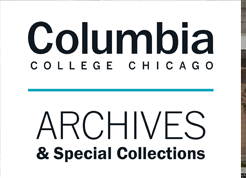Document Type
Article
Loading...
Publication Date
Spring 2010
Keywords
University of Chicago Organization of Black Students, Kentucky Paducah, Kentucky, Emmett Till, Gangs, Sugar Ray Robinson, Bus driving, Robert F. Kennedy, Malcolm X College, Booker T. Washington, University of South Carolina, Martin Luther King Jr., Chicago Transit Authority, Strikes and lockouts, Fred Hampton, Bobby Rush, Black Panther Party, Abdullah Omar, Prexy Nesbitt, National Conference of Black Lawyers (U.S.), Haywood Burns, Ronald Reagan, National Lawyers Guild, Harold Washington, Nelson Mandela, Chris Hani, Truth and Reconciliation Commission, Mexico-Emigration and immigration, Coalition of Black Trade Unionists (U.S.), Malcolm X, African National Congress, Zimbabwe, Robert Gabriel Mugabe
Disciplines
Political Science | Political Theory | Race and Ethnicity | Race, Ethnicity and Post-Colonial Studies | Work, Economy and Organizations
Abstract
Length: 135 minutes
Oral history interview of Stan Willis by Richard Hughey
Mr. Willis begins by recounting his early years in Chicago with his family and his gang activity in high school. He briefly describes his years in the Air Force and his work as a bus driver before enrolling at Crane College. Willis describes his activism work from his college years in detail, creating the Black History Club and later running for and winning student body president, during which time he helped organize strikes against injustices around the country. He mentions how he had a hand in naming the Malcolm X College. He describes how, while working as a bus driver in 1968, he organized strikes on the transportation services. Willis explains how he began learning about the anti-Apartheid movement after enrolling at the University of Chicago and his activism work through the Organization of Black Students. Willis describes his contribution to the anti-Apartheid movement after becoming a lawyer in 1983, defending those who were prosecuted for protesting. He explains how he organized a chapter of National Conference of Black Lawyers around 1986. He also describes in detail the work he and his peers did in South Africa to defend its people. Willis later mentions how his chapter sent delegations to ensure a fair election after Nelson Mandela’s release.
Recommended Citation
Hughey, Richard. "Interview with Stan Willis" (Spring 2010). Oral Histories, Chicago Anti-Apartheid Collection, College Archives & Special Collections, Columbia College Chicago. http://digitalcommons.colum.edu/cadc_caam_oralhistories/28
Creative Commons License

This work is licensed under a Creative Commons Attribution-NonCommercial-No Derivative Works 4.0 International License.
Included in
Political Theory Commons, Race and Ethnicity Commons, Race, Ethnicity and Post-Colonial Studies Commons, Work, Economy and Organizations Commons



Biography and Comments
Mr. Willis was born in 1941, raised on the west side of Chicago, and has lived in the city all his life. He served in the air force for four years before returning to the city to attend Crane Junior College [now Malcolm X College] where he completed an associate’s degree. He then went on to complete a bachelor’s and a master’s degree in Latin American Studies at the University of Chicago, a master’s degree in economics at the University of Illinois Chicago, and finally a law degree at Chicago-Kent College of Law. He has taught for a wide range of institutions, including Malcolm X College, Statesville prison, and Roosevelt University. In addition to teaching and social justice activism, he has served as a criminal defense attorney with civil rights law firm People’s Law Office for decades, with a focus on police violence, and he organized the African American Defense Committee Against Police Violence. He has earned numerous awards from a variety of organizations, including the National Lawyers Guild, the Arab-American Action Network, and the Coalition of Black Trade Unionists, in addition to being to honoree of the Standish E. Willis Community Service Award for African American law students demonstrating leadership in the community.
The interviewer conducted this oral history as part of his/her coursework for the Spring 2010 class, Oral History: The Art of the Interview. This interview supports the scope and content of the Chicago Anti-Apartheid Movement Collection at the College Archives & Special Collections department of Columbia College Chicago. Contact archives@colum.edu for more information and to view the collection.